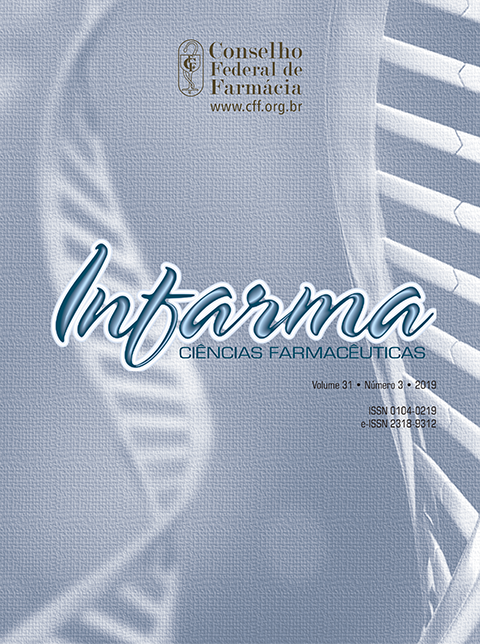THE USE OF PSYCHOTROPIC DRUGS IN CHILDREN AND ADOLESCENTS IN A CHILD PSYCHOSOCIAL CARE CENTER
DOI:
https://doi.org/10.14450/2318-9312.v31.e3.a2019.pp210-218Keywords:
psychotropic drugs, medicalization, child, adolescentAbstract
In the last decades, there has been a significant increase in children and adolescents undergoing psychopharmacological treatment. There is a growing number of medico-pedagogical intervention measures, based on the proliferation of diagnoses and drug prescriptions for this portion of the population. The objective was to verify the use of psychotropic drugs by children and adolescents from a Child Psychosocial Care Center (CAPSi). The study was conducted through a retrospective, and cross-sectional survey, with data from 319 records of a CAPSi from the northern region of Rio Grande do Sul, Brazil, from January 2016 to December 2017. It was observed that 66.7% of the children and adolescents who attended CAPSi used psychotropic drugs, among them the most prescribed were the antipsychotic risperidone with 36.3% and the stimulant methylphenidate 15.8%. Most drug users were 44.5% male, with a higher prevalence of attention deficit hyperactivity disorder 17.9% and depressive symptoms 8.5%, referred by the Municipal Specialized Care Center 27.3% and Guardianship Council 16.6%. This study revealed a high use of psychotropic drugs and, consequently, drugs used with diagnostic hypotheses or without a diagnosis, treating symptoms arising from school and family demand.
Downloads
Published
How to Cite
Issue
Section
License
Authors who publish in this journal agree to the following terms:
- Authors retain the copyright and grant the journal the right of first publication, with the work simultaneously licensed under the Licença Creative Commons Attribution which allows the sharing of work with acknowledgment of authorship and initial publication in this journal.
- Authors are authorized to take additional contracts separately, for non-exclusive distribution of the version of the work published in this journal (e.g. publish in institutional repository or as a book chapter), with acknowledgment of authorship and initial publication in this journal.
- Authors are allowed and encouraged to publish and distribute their work online (e.g. in institutional repositories or on their personal page) at any point before or during the editorial process, as this can generate productive changes as well as increase the impact and Citation of published work (See O Efeito do Acesso Livre ).


